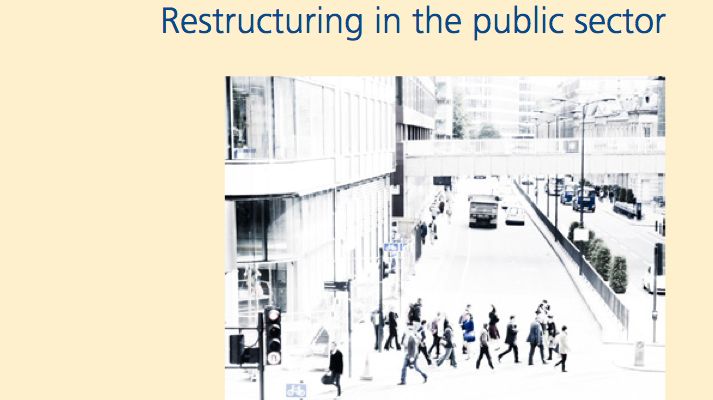
News -
Restructuring in the public sector in Europe
(Dublin, Ireland): In the immediate aftermath of the recession in 2008, employment in the public sector continued to grow, helping to sustain demand in the European economy. However, by 2010 significant restructuring was underway in the public sector in several Member States. Public sector restructuring affects more of the population than private sector restructuring, and so generates a great deal of political interest, as well as some controversy.
The ‘ERM Annual Report 2014 – Restructuring in the public sector’ provides an overview of restructuring trends in Member States since the onset of the recession in 2008. One of the characteristics of the recession was that, even if employment in the public sector helped to cushion the initial macroeconomic shock, the public sector subsequently experienced the most severe restructuring in Europe for many decades. This was due to the spiraling public debt in many Member States, largely due to the banking crisis, and issues related to the governance of a then fragile euro.
The report has found that nineteen of the 28 Member States have experienced declining employment levels in the core public sector: the sharpest decline has been in Latvia (-29%), with declines of more than 10% recorded in the UK and France. Meanwhile, the education and health sectors have continued to expand during the peak years of the crisis and afterwards, although at a slowing pace since 2011.
Employment in the large public services – health and education – continues to grow but there is evidence of an increasing share of private employment in these sectors. Some 800,000 net job losses have been recorded in the core public sector (public administration) in the EU since 2008, meaning that this sector has contracted faster than the overall workforce. As most job loss occurred in the male-dominated core public sector, public sector employment has become significantly more female-dominated overall.
More than one-third of public service workers in Europe are now aged over 50, and the share of older workers has increased by more than five percentage points since 2008 in both the health and public administration sectors. While the number of workers taking early retirement has declined somewhat in the private sector since the onset of the economic crisis, it has increased in the public sector.
The report also found that pay reductions or freezes have been most common in the programme countries, Spain, the UK and the Baltic countries, and least common in the Nordic countries and Germany.
There is no doubt that, regardless of the experiences of the recent economic crisis, the public sector faces a very challenging future: in no sector of the economy will the impact of the ageing demographic structure be as great as that in the health and care sectors.
